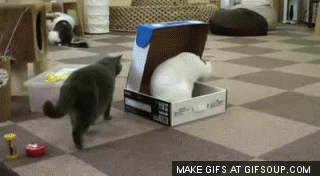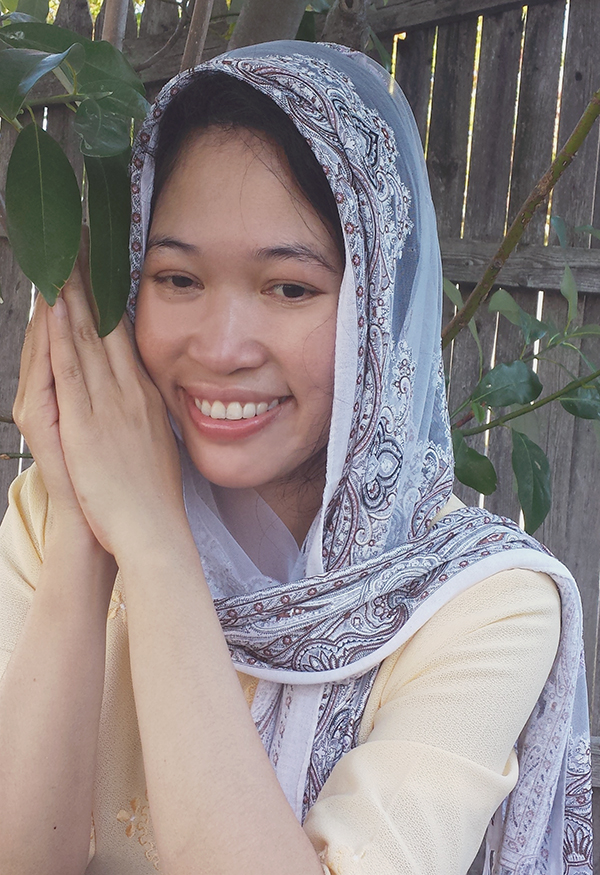-
Comment August 8, 2015
-
Lovebird drinking water alone
Comment August 8, 2015Lovebirds normally don’t talk. Although they are a type of parrot, and they do have the ability to mimic human speech, Lovebirds are not among those species that most would consider to be talking birds. This is because they very rarely decide to speak, and if they do choose to mimic a sound, more often than not they repeat simple noises such as whistles or household sounds such as doorbells and microwaves. It is not known why some Lovebirds are more prone to mimicking speech than others, but it is widely believed that those who do learn to talk are taught from a very young age. Source: Alyson Kalhagen, Pet Birds Expert

-
Sunrise paints the sky
Comment August 8, 2015 -
Kittie hiding
Comment August 8, 2015Landing on all fours is something typical to cats thanks to the help of their eyes and special balance organs in their inner ear. These tools help them straighten themselves in the air and land upright on the ground. Source: AnimalPlanet

-
Life goes on
Comment August 8, 2015 -
Where life is simple yet peaceful
Comment August 8, 2015 -
Happiness Found Me Alone
Comment August 8, 2015Happiness found me alone one day and took me by the hand.
He showed me how the sun gave out its warmth across the land.
Sadness found me content and smiling upward at the sun.
He talked of droughts and blindness and what burning rays had done.Happiness found me alone again and pointed to the sky.
He showed me how the storms created rainbows way up high.
Sadness found me intrigued and took me to the rainbow’s end.
He showed me how it disappeared to ne’er return again.Happiness found me alone and taught me how to sing a song.
He sang a dozen melodies as I chirped right along.
Sadness found me singing out and covered up his ears.
He said the noise was deafening, and wished he couldn’t hear.Happiness found me alone and gave me seven coins of gold.
He showed me many fancy things that merchants often sold.
Sadness found me admiring the pretty things I’d bought.
He pointed out my empty purse and money I had not.Happiness found me alone and helped me talk to someone new.
He called the boy my friend and said that I was his friend too.
Sadness found me together with my kind, attentive friend.
He whispered of betrayal and how broken hearts don’t mend.Happiness found me alone and held me tight in his embrace.
He whispered kindness in my ear and kissed me on the face.
Sadness found me with Happiness but before he spoke at all,
I told him he’d have better luck at talking to the wall.~Richelle E. Goodrich
-
It’s like breathing
Comment August 8, 2015It’s like breathing—once you quit, your flame dies letting total darkness
extinguish every last gasp of hope. You can’t do that. You must continue
taking in even the shallowest of breaths, continue putting forth even
the smallest of efforts to sustain your dreams. Don’t ever,
ever, ever give up. ~Richelle E. Goodrich -
A Block of Ice
Comment August 8, 2015If you place a large block of ice out in the open sun, you can see it deteriorate — in the same way the body ages — bit by bit, bit by bit. After only a few minutes, only a few hours, it will all melt into water. This is called khaya-vaya: ending, deterioration.
The deterioration of fabricated things has been going on for a long time, ever since the world came into being. When we’re born, we take on these things as well. We don’t discard them anywhere. When we’re born, we take on illness, aging, and death. We gather them up at the same time.
Look at the ways it deteriorates, this body of ours. Every part deteriorates. Hair of the head deteriorates; hair of the body deteriorates; fingernails and toenails deteriorate; skin deteriorates. Everything, no matter what, deteriorates in line with its nature.
“In Simple Terms: 108 Dhamma Similes”, by Ajahn Chah
translated from the Thai by Thanissaro Bhikkhu.
Access to Insight (Legacy Edition), 2 November 2013
Link source -
How far you can go
Comment August 8, 2015
















